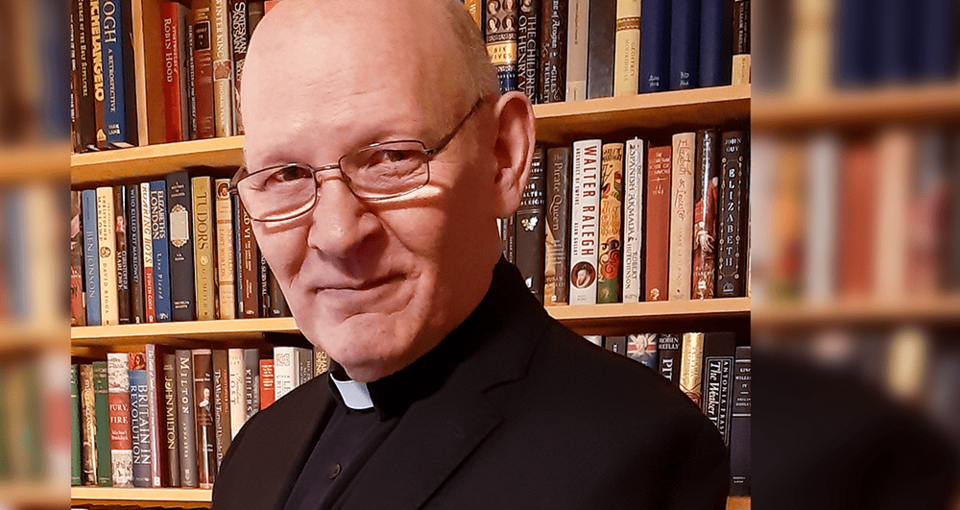When I was researching my biography of H.G. Wells in the early 1990s what shocked me was the man’s lifelong support for social engineering and eugenics. Put simply, his socialism embraced the idea that for the bulk of humanity to be free and happy, a sizable minority had to disappear. For Wells this included the disabled, the “perverse,” and even perhaps many who were non-white. What became apparent very quickly was that such an approach wasn’t confined to the author of War of the Worlds and The Invisible Man, but was extraordinarily common on the intellectual left. Many in the Fabian Society and Labour Party shared these ideas, as did mainstream socialist thinkers in Europe and North America.
This was, of course, before the genocidal policies of the Nazis were implemented, and while many of these grand men and women of the left had died before the camps were liberated and the horrors known, others certainly lived on. Some were contrite, others not. Either way, it hardly forgives them their ideology and influence — naiveté and ignorance simply isn’t a viable defense in such circumstances.
One of the most articulate eugenicists of the era was a man who survived until 1950, and remains one of the world’s most famous and respected dramatists. George Bernard Shaw, literary giant, author of some 60 plays, and winner of the Nobel Prize.
The Irishman’s opinions are, however, coming back to mangle and even smash his reputation. In 2020 a group of students at RADA, the Royal Academy of Dramatic Art, called for Shaw’s name to be removed from the drama school’s theatre as part of an anti-racism action plan.
Yet the accusation that the renowned theatre college “celebrates historical figures who embraced racist ideologies” does have a certain merit. Problem is, as has been debated myriad times: do, can, and should we separate an artist’s work from their period, character and ideas? If the ghosts of anachronism and historical assumptions are never to be exorcised, there are an awful lot of people who will fail and fall to the wide-awake litmus test.
Shaw did write that, “The only fundamental and possible socialism is the socialisation of the selective breeding of man,” and, chillingly, “A part of eugenic politics would finally land us in an extensive use of the lethal chamber. A great many people would have to be put out of existence simply because it wastes other people’s time to look after them.”
He lectured for the Eugenic Education Society, praised Stalin (naturally) the early Mussolini, and even Hitler as late as 1935. He abandoned most of all this in his old age but never made any formal apology.
Shaw was also an incisive critic of imperialism, mercilessly exposed establishment hypocrisy, opposed war and oppression throughout his career, and cared passionately about actors and writers — the very people at RADA trying to expunge his name from their place of learning. And here’s another challenge and even embarrassment for those who would remove the social engineers from the litany of the great and the good: many of their harshest opponents were not others on the left but, in Edwardian Britain and in the ‘20s and ‘30s, conservative Roman Catholic writers led by G.K. Chesterton and Hilaire Belloc.
There are an awful lot of people who will fail and fall to the wide-awake litmus test. In 1922, Chesterton wrote a book entitled Eugenics and Other Evils. He wrote that, “Eugenics itself, in large quantities or small, coming quickly or coming slowly, urged from good motives or bad, applied to a thousand people or applied to three, Eugenics itself is a thing no more to be bargained about than poisoning.”
He and Belloc, both arch-traditionalists and both responsible for some jarringly reactionary and anti-Semitic comments, nevertheless saw the policies of Shaw, Wells, Planned Parenthood founder Margaret Sanger, and the rest for what they were. These prolific authors and journalists were also surprisingly early opponents of the Nazis, principally because of the party’s racist eugenics.
Chesterton wrote of thousands of Jews being “rabbled or ruined or driven from their homes” by the Nazis, who “beat and bully poor Jews in concentration camps,” and how, “I do indeed despise the Hitlerites.” It doesn’t excuse his and Belloc’s cruel jibes about Jews, but it does present some enormous difficulties for the new puritans who would cancel everyone who has offended their sensibilities or been on “the wrong side of history.”
The debate goes on, and I suspect won’t end for a very long time.
Rev. Michael Coren is an award-winning Toronto-based columnist and author of 18 books, appears regularly on TV and radio, and is also an Anglican priest.



